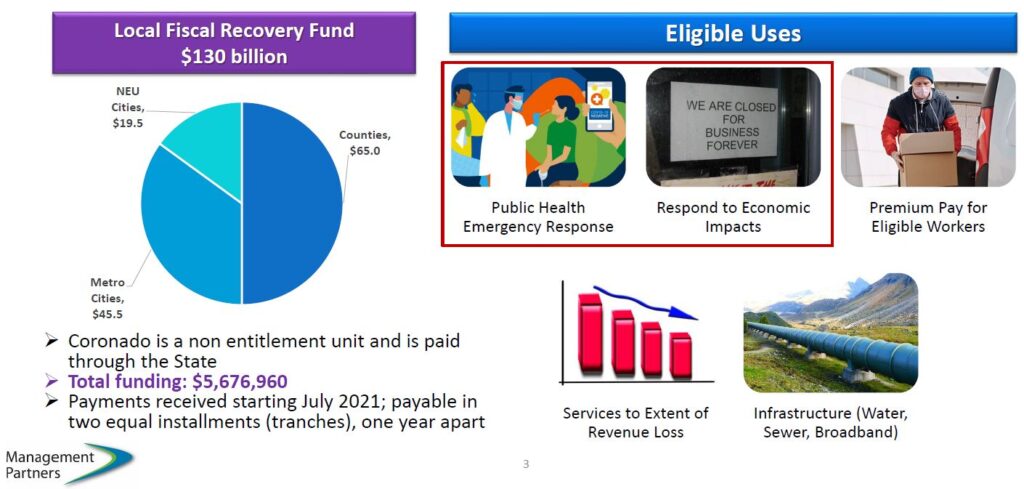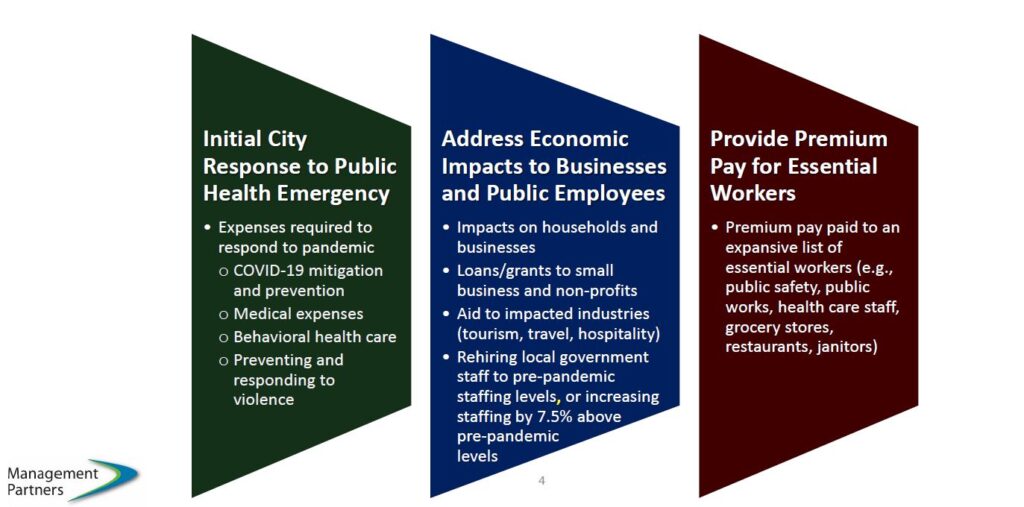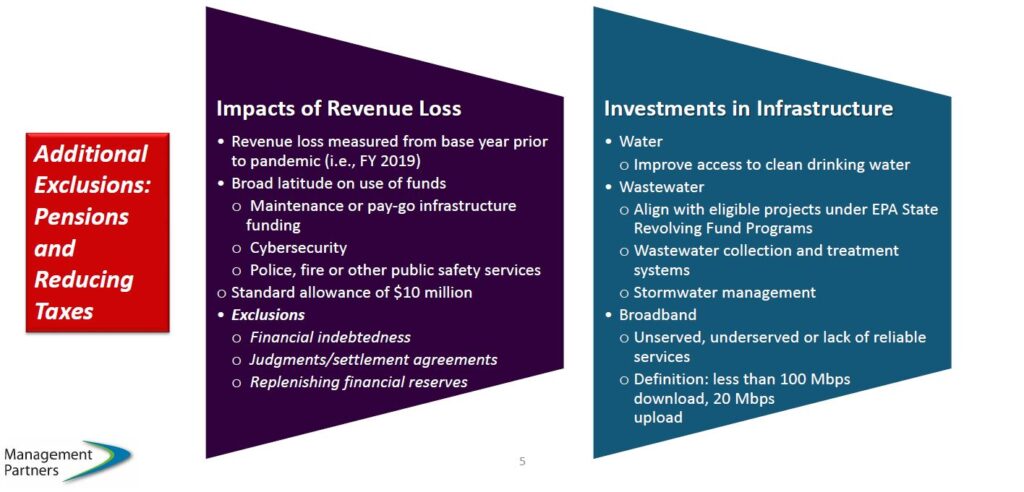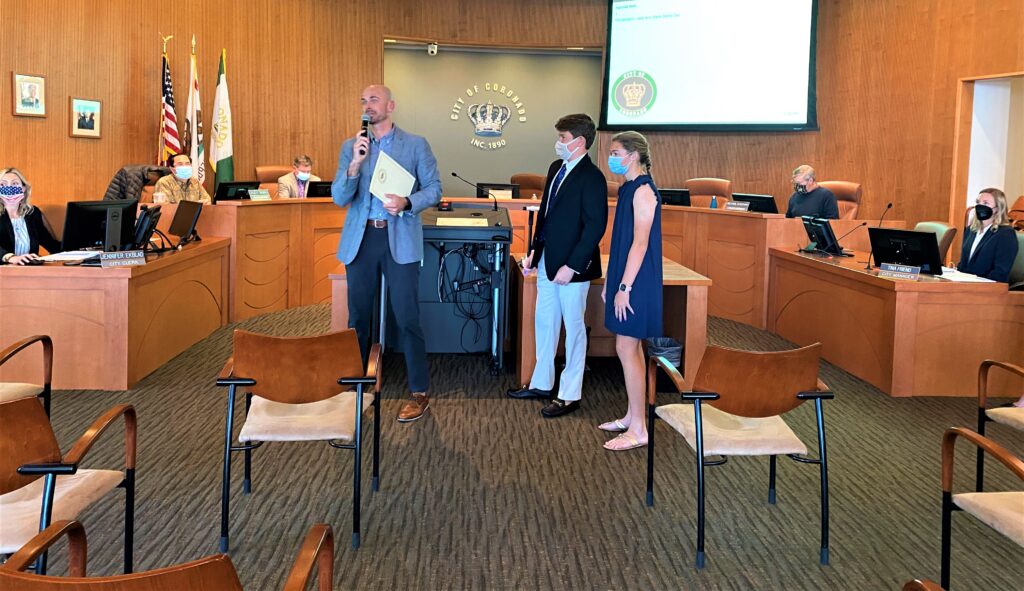
Starting off on an inspirational note, Mayor Bailey recognized Jack and Grace Elardo, and named the day in their honor, at the January 19 Council meeting, for their exemplary fundraising for the Coronado Schools Foundation over the past five years. They recently reached a new milestone of $20,972.34 in funds raised. The duo said, “We saw a lack of funding for some of the school programs and we needed to act.” Starting in 2017, they began fundraising when Jack was in 5th grade and Grace in 4th, with coffee, donuts, and orange juice “pop up” stands. They have since started selling at Artisans Alley, 4th of July lemonade and cookies sales, hot cocoa for the Christmas parade, concessions at Coronado’s Got Talent, and Back to School carnival snacks. Their popular Yard Card signs have brought joy and birthday messages throughout Coronado during the pandemic. Mayor Bailey praised them for their entrepreneur spirit, tenacity, and leadership in making a significant difference for CUSD students. All councilmembers were present for the meeting with Councilmember Heinze attending remotely. Only 50 percent capacity was allowed at the meeting due to new restrictions.
City Manager Tina Friend started her report by commending City Clerk Jennifer Ekblad as the chief architect to updates made to the city’s website, noting that it offers easier access to general reports and to search records. She noted that the city offices will be open only to staff until January 28, if no new employee COVID cases are reported. Community members can make appointments during this time, but no walk ins will be allowed. With regards to the Tsunami coastal warning, Friend said she was thankful there was no damage and considered it a “great drill,” commending police, fire, and lifeguard staff for their preparedness.
Senior Planner Jesse Brown gave a presentation on the appeal request of the Design Review Commission’s (DRC) decision for The Shops at Coronado at 1000 C Avenue. This project, which was part of the old Bay Books site, was approved back in 2018 and 2019, but upon review of completion in July 2021, the issue of the large Ipe wood wall on the paseo and the C Avenue monument sign came under scrutiny for not having been fully approved by the DRC. In October 2021, plans were brought to DRC with regards to the paseo wall and monument sign, which were designed to cover unsightly utilities. The DRC unanimously voted not to approve the submitted plans and the owner chose to bring this matter to council on appeal. The DRC was fine with other elements like the trash enclosure, parapet, and awnings, but felt that the wall and sign conflict with other development in the area, contain conflicting design elements, fail to achieve human scale, and will detract from the village ambiance and pedestrian-friendly environment. The DRC was presented with three options to soften the wooden paseo wall with the first having rectangular plants, the second showing metal grids installed, and the third with displays of local artwork. The council felt that the art concept could have merit and suggested that the owner could work with the Cultural Arts Commission to accomplish this. Mayor Bailey felt that this could be ideal for taking pictures for social media.
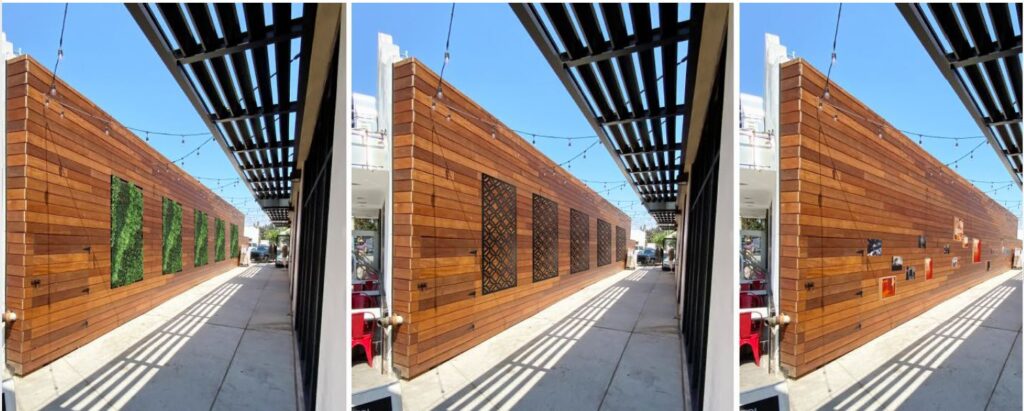
Representatives from Moniker Design and Kleege Enterprises said the Ipe wood was selected for its warm and natural appeal and acted as a screen to hide unsightly utilities as required by code. They confirmed that the monument sign is not yet completed, and will be capped by a wood top. Mainstreet Executive Director Karla Robles-Puig urged the council to support the DRC ruling and ask for a better solution.
The council had a long discussion on this issue, including how it fits into the Orange Avenue Corridor Specific Plan, with Councilmember Heinze asking why the wall was built without city approval, to which he was told that it was done as part of the construction. Councilmember Sandke said, “There was no love shown to the space,” with Councilmember Tanaka agreeing that it contains conflicting design and scale. Councilmember Donovan asked about the width required by fire code and was told that a minimum of 10 feet is the minimum needed. The current paseo is 12 feet, so the council felt that there was room to add landscaping, benches, and lighting elements. They voted four to one, in favor of denying the appeal, asking the owner to come back to DRC within 60 days with a completed redesign application. Mayor Bailey voted no, stating that he felt it looked better than before, resembled the picture, and didn’t violate the Orange Avenue Corridor Specific Plan, and was a major investment.
Friend introduced consultants Senior Vice President Andrew Belknap and Partner Steve Toler from Management Partners, who gave a presentation via zoom on the allocation of Coronavirus state and local fiscal recovery fund allocation. They detailed the American Rescue Plan Act (ARPA) of 2021, which is a $1.9 trillion package signed into law on March 11, 2021 and is the largest federal involvement in local government since the Carter administration. Coronado will receive $5,676,960 in total funding, with half of the money received in July 2021 and the remainder in July 2022. They noted that there were strict reporting and single audit requirements, with five allowable categories, with pensions and reducing taxes excluded, to which the ARPA money can be used:
- Initial city response to public health emergency
- Address economic impacts to businesses and public employees
- Provide premium pay for essential workers
- Impacts of revenue loss
- Investment in infrastructure
The consultant and staff recommendation for the most expeditious way to use the funds was for revenue loss provisions, which was unanimously approved by the council.
The quarterly projects progress report was given by Assistant City Manger Dominique Albrecht. With more than 50 projects, tasks, and initiatives on the list, city staff use this as a tracking tool, to help gauge performance and advance discussions on workload capacities and priorities. Projects moved to completion since the last update include: the agenda management system implementation, the Kettner Boulevard Sewer Point Repair, and the Public Art Master Plan. Highlighted projects include the Ocean Boulevard sidewalk enhancement, with awarded contracts approved on the Consent Calendar. Cays Park Master Plan, Parker Pump Station, Climate Action Plan, and the Integrated Citywide Financial Management Control system are others, to name a few. The council unanimously approved this with the Gateway Toll Plaza placed on the back burner, due to Caltrans’ timing, and made the Caltrans state highway relinquishment and Silver Strand undergrounding a higher priority. This item will come back for further discussion at the February 1 council meeting and the Capital Improvement Projects (CIP) subcommittee will weigh in. Friend thanked Albrecht and city staff for their work on this updated list, and noted that this prioritization also helps the budget process.
The Cays Park Master Plan project proposed schedule was also presented by Albrecht which was unanimously approved. In December, the council hit a reset on this project and modified the Van Dyke Landscape Architects contract to develop three master plan alternatives with extensive graphics including comprehensive public feedback. The proposed schedule shown below outlines the timeline for the project, which includes surveys and public workshops, which will come back for final presentation in late 2022. Community members can subscribe to Comment Coronado at https://commentcoronado.org/ to receive updates.
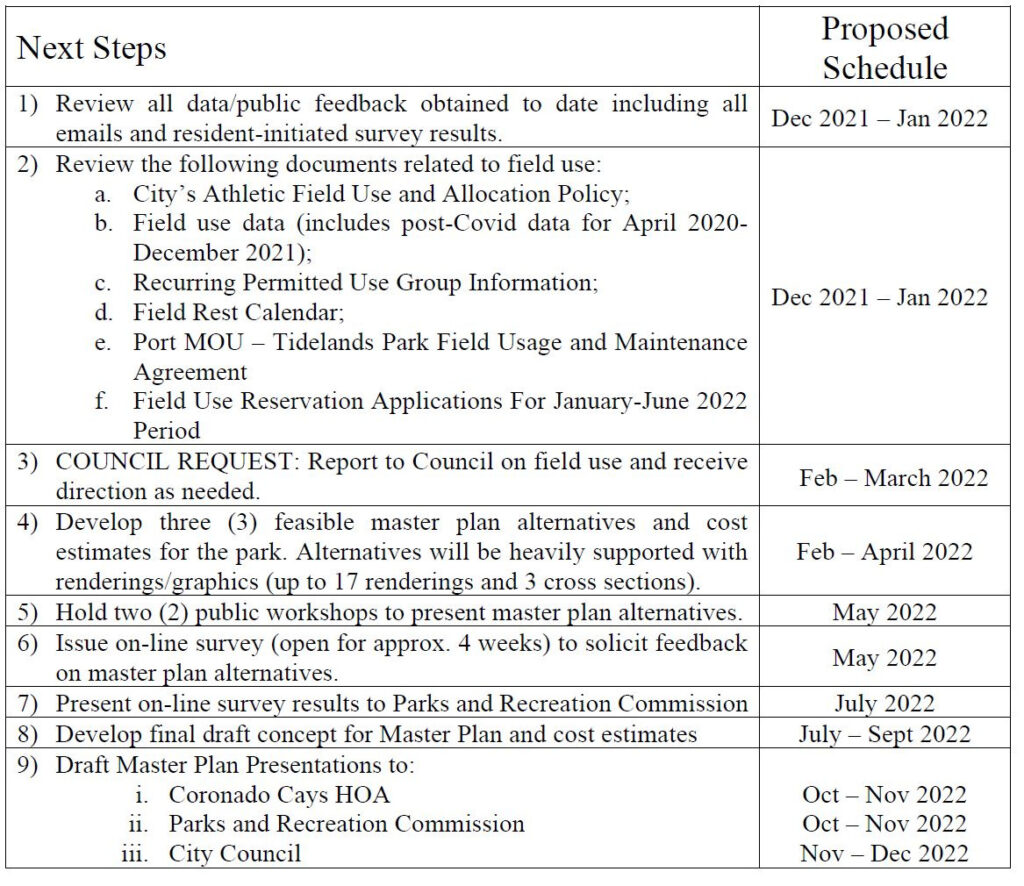
Councilmember Donovan was nominated as an alternate for the Metropolitan Transit System (MTS) Board, replacing Mayor Bailey who noted that he has scheduling conflicts. Councilmember Sandke is also on this board.




